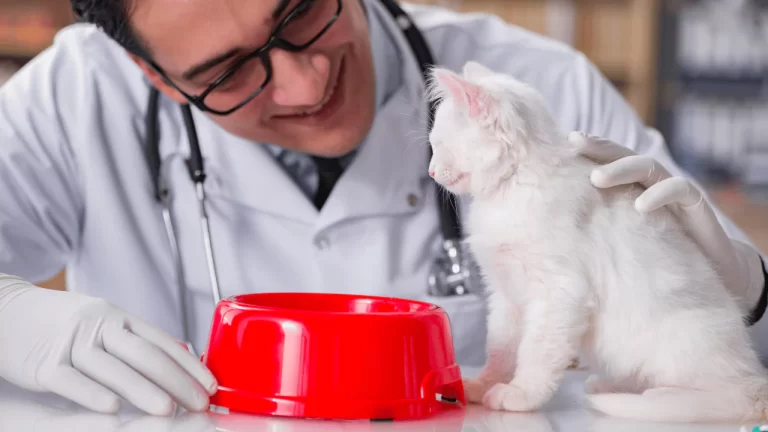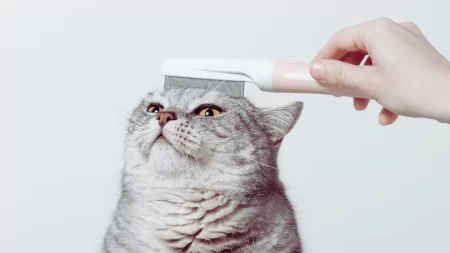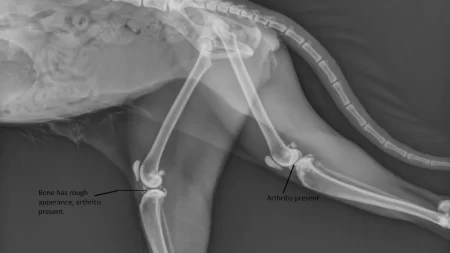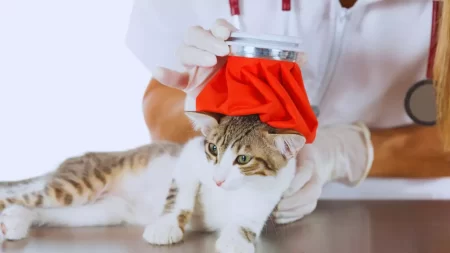It’s common for cats to experience a decrease in appetite after visiting the veterinarian. The unfamiliar environment, handling by strangers, and procedures like vaccines can cause stress that leads to inappetence. While it’s normal for the effects to be temporary, ongoing refusal to eat is a concern requiring action.
There are several potential reasons behind appetite loss after a vet visit. Being aware of the common causes along with solutions to encourage eating can help owners restore their cat’s normal food intake. When home remedies fail to work within a couple days, it’s important to consult the vet to address any underlying issues.
Possible Reasons for a Cat Not Eating After a Vet Visit
Stress or Anxiety
The sights, sounds, and smells of a clinic can be frightening for some cats. Vet examinations involve being poked, prodded, and handled in ways that may seem threatening. Procedures like vaccines, blood tests, and oral exams also cause discomfort.
All this stimulation strains a cat’s resources for coping with stress. The result may be anxiety severe enough to suppress their normal appetite for a day or two. Stress from vet visits tends to resolve on its own as cats return to their familiar home environment.
Medication Side Effects
Cats are sometimes prescribed new medications during or after veterinary appointments. Antibiotics, pain relievers, anti-nausea drugs or other treatments can potentially cause side effects like nausea, vomiting or changes in taste that lead to appetite issues.
Usually medication side effects are temporary. But if they persist more than a day or two, it’s a good idea to consult the vet about adjusting the drug or dosage.
Dental Issues or Mouth Pain
Thorough oral exams and teeth cleaning at the vet may reveal problems like gum disease, broken teeth, or mouth ulcers. Cats may have lingering pain or discomfort from these conditions that inhibits normal eating and chewing.
Even a simple tooth extraction can make eating painful for several days. Soft foods, warming to enhance smells, or pain medication may help increase food intake while the mouth heals. But if problems persist, further treatment of dental issues is needed.
Change in Diet or Feeding Routine
Vet clinics commonly provide different foods than a cat is accustomed to at home. The unfamiliar food smells, textures and flavors can put cats off their appetite, especially finicky eaters.
Appetite may also suffer if mealtimes are not kept consistent, or if cats must eat in strange areas like exam rooms rather than their preferred feeding stations. Sticking to their normal diet and schedule as much as possible aids the return to regular eating.
Illness or Underlying Health Issues
Cats are brought to the vet because owners suspect a problem in the first place. Exams, tests or treatments are intended to diagnose and resolve illness. But cats may continue feeling unwell for awhile even after receiving care.
Conditions like infections, kidney disease, diabetes and hyperthyroidism can all depress appetite. Receiving medication or other treatment should eventually help cats start eating again. But ongoing nausea, discomfort or metabolism changes may delay improvement.
Solutions to Encourage Eating
There are many tactics owners can attempt at home to entice a cat with poor appetite after a vet visit:
Create a Calm and Comfortable Environment
Cats eat best when they feel relaxed and secure. Minimizing stressors and providing familiarity can help stimulate appetite after the chaos of a clinic. Shut doors to noisy areas, plug in feline pheromone diffusers, and respect their space if they seem skittish or agitated. Let them eat in their preferred spot.
Offer a Variety of Tempting Food Options
Provide both dry and wet food along with occasional treats or cat safe human foods like unseasoned chicken or tuna. Warm the wet food to bring out aromas. Give choices and gauge if one type is preferred. Avoid diet foods; full fat foods are tastier. Cats tempted by variety are likely to start eating something.
Warm Up Wet Food to Enhance Aroma
Heating canned or pouched wet food to body temperature (around 100F) heightens its naturally strong scent. The aroma stimulates appetite. Avoid microwaving food though, as hot spots in the dish can burn cats. Place opened cans or pouches into a bowl of hot water for a few minutes to gently warm it.
Use Interactive Feeders or Puzzle Toys
Food placed into interactive feeding toys that require batting, rolling or pawing to extract it can pique interest and jump start appetite. Other benefits are mental stimulation and slowing down fast eaters. Automatic food dispensers to deliver small portions also prevent cats rejecting a large bowl.
Consult with your Vet about Appetite Stimulants or Medication Adjustments
If your cat shows no interest in food after 2 or 3 days, ask your vet about prescribing appetite stimulating drugs. Common options are cyproheptadine or mirtazapine.
Also discuss if their current medications like pain relievers, sedatives or antibiotics could be switched, reduced or discontinued. Adjustments may help resolve any side effects suppressing appetite.
When to Seek Veterinary Advice?
While giving it a few days for appetite to bounce back is reasonable, there are situations requiring prompt vet guidance:
- Prolonged loss of appetite with minimal eating for 4-5 days or more
- Noticeable weight loss from malnourishment
- Signs of dehydration – dry gums, sunken eyes, little urination
- Fever, vomiting, diarrhea or other concerning symptoms
- No improvement after trying different home remedies
With anorexic cats, forced feeding is not advised – it can do more harm than good. Veterinary assessment helps determine if hospitalization for IV fluids, nutritional support and medication is needed to recover normal appetite and prevent complications like liver disease.
In conclusion, vet visits can disrupt a cat’s routine and cause short term stress leading to inappetence. Patience, enticing food options and maintaining their normal schedule can frequently get cats eating again within a couple days. But if anorexia persists along with weight loss or other symptoms, promptly consult your veterinarian for an evaluation and treatment plan. With the right care, cats can get back to enjoying their meals and return to health.







